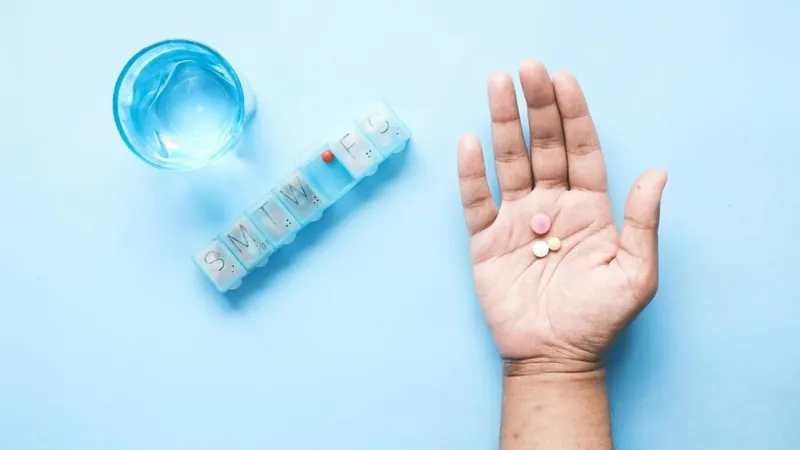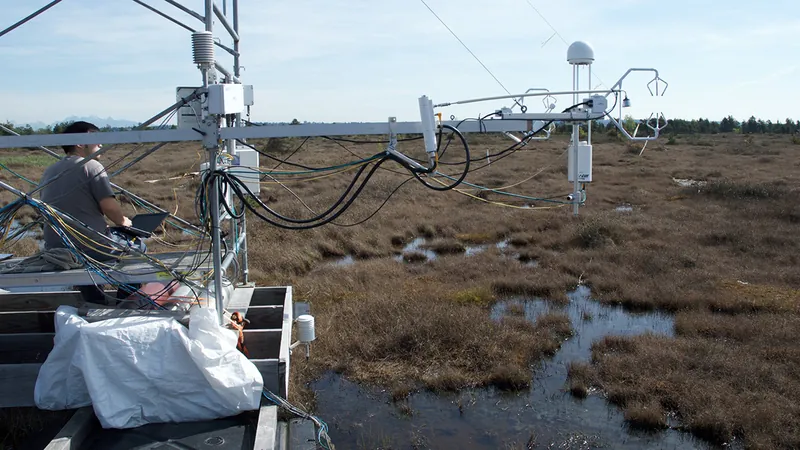
A Beacon of Hope in the Fight Against Antimicrobial Resistance: Phu Tho, Vietnam's Transformative Journey
2024-11-20
Author: Wei
Antimicrobial resistance (AMR) is a looming global threat, endangering the progress made in modern medicine, and the situation is particularly dire in resource-limited regions like Vietnam. In the northern province of Phu Tho, districts such as Ha Hoa, Yen Lap, and Tan Son face immense challenges due to inadequate healthcare infrastructure and lack of diagnostic capabilities, making them vulnerable to the consequences of AMR.
Facing the Challenge Head-On
Patients in these districts often find themselves traveling long distances to provincial hospitals just to undergo testing, a situation that not only delays diagnosis but also exacerbates the risk of complications. In the absence of microbiological facilities, healthcare providers are left to make crucial decisions based solely on symptoms and clinical experience, inadvertently paving the way for the misuse of antibiotics.
Recognizing this critical challenge, a collaborative initiative led by the Oxford University Clinical Research Unit (OUCRU) and the Phu Tho Department of Health was launched. The goal? To revolutionize antibiotic stewardship and provide effective AMR control in these underprivileged areas.
A Milestone Meeting
A significant semi-final meeting took place on November 19, 2024, to highlight the advancements the initiative has brought to healthcare practices in Phu Tho. Attended by leading health officials, including Dr. Nguyen Thanh Ha from the National Hospital of Tropical Diseases, the meeting showcased the positive change in patient care and antibiotic management resulting from the project.
Transformational Changes and Tailored Solutions
Since the project's inception in 2022, two innovative microbiology solutions have been developed to cater to the unique challenges faced by each district. In Ha Hoa, the introduction of a Mini-lab allows for immediate diagnostic testing of sterile samples—an invaluable resource that cuts down on time and enhances patient care. Meanwhile, in Yen Lap and Tan Son, a Hub-and-Spoke model for sample testing has emerged, facilitating efficient access to centralized laboratory services.
This shift to data-driven decisions empowers healthcare providers, leading to more precise antibiotic prescriptions tailored to the specific bacteria identified in infections. As a result, the reliance on broad-spectrum antibiotics has significantly diminished, thereby reducing the risk of developing resistant strains.
Dr. Tran Thu Hoai, a physician from the local community, expressed the profound impact of the new microbiology testing capabilities: “Ordering microbiology tests upon patient admission has become standard practice, significantly altering my treatment protocols.”
Empowering Healthcare Professionals Through Training
Beyond upgrading technical equipment, the initiative focused on enhancing the skills and knowledge of healthcare professionals through rigorous training programs. Topics covered include antimicrobial stewardship, clinical microbiology, ethical research methods, and infection prevention strategies, ensuring that providers can leverage their resources effectively for better patient outcomes.
Clinical pharmacist Nguyen Thi Quynh Huong shared her insights on the impact of these training sessions: “Surgeons’ attitudes towards antibiotic use have evolved, leading to collaborative efforts to enforce guidelines for antibiotic prophylaxis in clean surgeries within our health centres.”
A Vision for Sustainability
Looking ahead, the commitment to maintaining the progress achieved is unwavering. The health centres in Ha Hoa, Yen Lap, and Tan Son are set to continue their partnerships to keep the newly established microbiology testing capabilities operational. Plans are already underway to integrate microbiology testing into regular clinical practices and broaden the available testing options.
Dr. Thomas Kesteman, the project’s principal investigator, stated, “This initiative has demonstrated that microbiology testing can thrive in resource-limited settings, significantly bolstering antimicrobial stewardship programs.”
Preliminary results reveal a drop in antibiotic usage across the board, data that could play an influential role in shaping future health policies in Vietnam.
Conclusion: Hope for the Future
As the project progresses, ongoing training and collaboration will be essential to ensuring that the advancements made continue to flourish and evolve. The success story of Phu Tho serves as a model for other regions battling AMR, proving that targeted intervention and dedication can bring about lasting change in healthcare, even in the most challenging circumstances.
The project “Upgrading and Amplifying Antimicrobial Resistance Control with Microbiology Laboratory Solutions for District Hospitals in Phu Tho, Vietnam” is part of a broader effort to extend antimicrobial stewardship initiatives to underserved areas across the country, with hopes of curbing the rise of AMR in Vietnam and beyond.





 Brasil (PT)
Brasil (PT)
 Canada (EN)
Canada (EN)
 Chile (ES)
Chile (ES)
 España (ES)
España (ES)
 France (FR)
France (FR)
 Hong Kong (EN)
Hong Kong (EN)
 Italia (IT)
Italia (IT)
 日本 (JA)
日本 (JA)
 Magyarország (HU)
Magyarország (HU)
 Norge (NO)
Norge (NO)
 Polska (PL)
Polska (PL)
 Schweiz (DE)
Schweiz (DE)
 Singapore (EN)
Singapore (EN)
 Sverige (SV)
Sverige (SV)
 Suomi (FI)
Suomi (FI)
 Türkiye (TR)
Türkiye (TR)